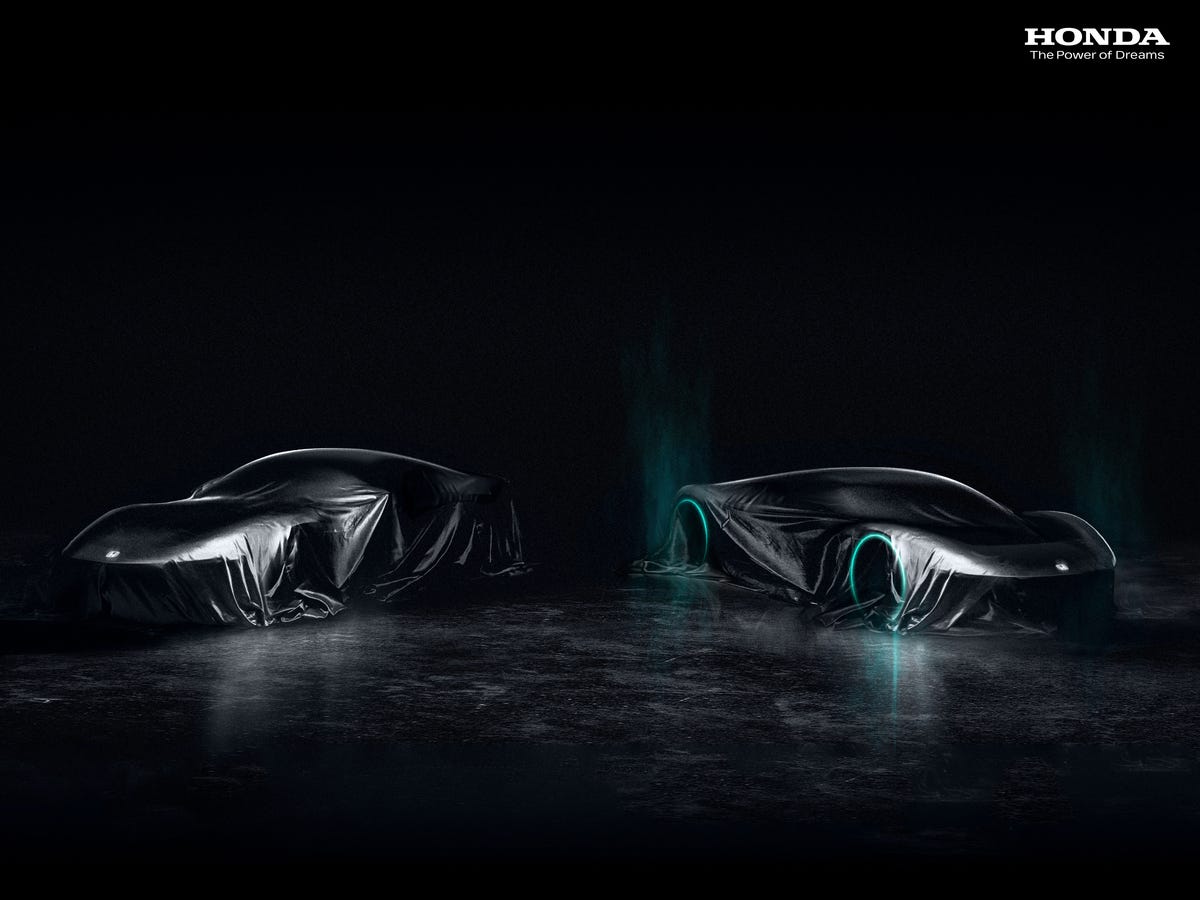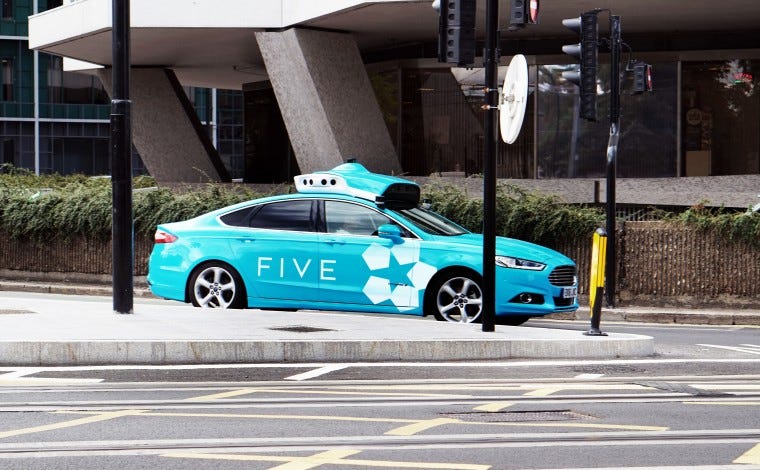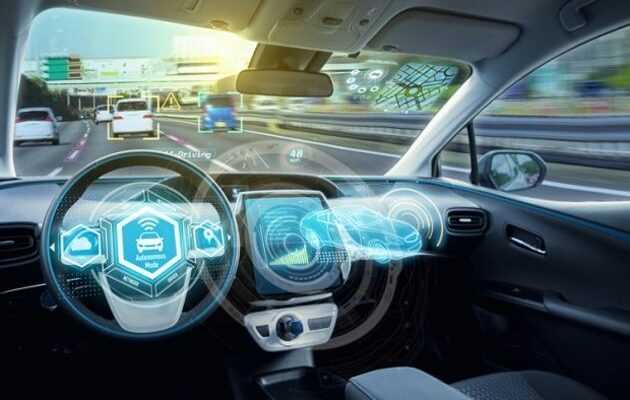Prolific week for the autonomous car. And she began with a more than strange anecdote. Earlier this week, San Francisco police officers were filmed stopping a self-driving vehicle operated by Cruise because it was driving without turn signals. But they found no one inside. The video, which was originally posted on Instagram, shows that shortly after being pulled over, the car drove off.
In reply to a tweet from the editor of 9to5 Seth Weintraub, Cruise said the vehicle performed as planned and headed to “the nearest safe location for a traffic stop”.
“We are working closely with the Police on how to interact with our vehicles, including a dedicated phone number they can call in situations like this,” Cruise added.
The fact remains that while waiting for autonomous cars to obey the finger and the eye of the police, the players in the sector are progressing from week to week.
Honda: 30 electric vehicle models by 2030, including two sports cars
By 2027, in partnership with General Motors, Honda should be able to launch affordable electric vehicles. That is, cars whose cost and range are as competitive as those of gasoline-powered vehicles.

Honda will launch two electric sports models. Picture: Honda.
Honda said this week it plans to spend nearly 37 billion euros over the next 10 years to advance its electric vehicle strategy, through R&D and other investments. The Japanese automaker wants to launch 30 electric vehicle models globally by 2030 and says it is expected to produce more than two million electric vehicles a year by then. Its EV lineup will also include two sports cars.
“While meeting the challenges of carbon neutrality and electrification, Honda is always passionate about bringing PLEASURE to its customers,” Honda said in its statement.
It’s not until around 2026 that EVs are expected to become truly popular, according to Honda. At that time, the company will ramp up production by adopting Honda’s architecture: an EV platform that combines hardware and software.
EV adoption, however, is expected to grow rapidly over the next decade. According to Gartner, only four million EVs were shipped globally in 2021, but the research firm predicts shipments will reach 36 million in 2030, an increase of 32%.
Honda estimates that by 2027 it should be able to launch affordable EVs – cars that are as cost and range competitive as gas-powered vehicles.
The biggest challenge facing EV manufacturers today is batteries. Honda has a two-part plan to fix this problem. For now, the company plans to rely on maintaining its external partnerships in different geographies to ensure a stable supply of liquid lithium-ion batteries. By the mid-2020s, Honda plans to bring next-generation battery technology to market.
Like Nissan, Honda is developing all-solid-state batteries, a potentially game-changing technology that will dramatically reduce the cost of EVs. Honda is investing around 300 million euros in the construction of a demonstration line, with the aim of making it operational in the spring of 2024.
Honda’s electrification initiatives are part of its drive to achieve carbon neutrality “across all products and business activities” by 2050, the company says. Achieving this goal requires “a multifaceted and multidimensional approach, not a simple replacement of motors with batteries”. It also involves using interchangeable batteries and hydrogen, the company says.
Tesla: Elon Musk dances in Berlin and cries in China
Supply chain disruptions and China’s “zero Covid-19” policy add to the complications, but Tesla continues to deliver on its delivery promises. Electric car maker Tesla produced a record 305,407 vehicles and delivered 310,048 in the first quarter of 2022. This quarter shows the acceleration of Tesla’s production and delivery capacity, with numbers up from to 184,800 and 180,338 in the same quarter last year.
Most of Tesla’s production was the most affordable Model 3 and the high-end Model Y SUV, which hit the market in 2020. This quarter, the company produced 291,189 of these models and delivered 295,324, according to Tesla’s press release. Tesla also produced 14,218 Model S and Model X electric vehicles and delivered 14,724.
Tesla has reached this milestone despite what Tesla boss Elon Musk describes as an “exceptionally difficult” quarter due to supply chain disruptions and China’s “zero Covid-19” policy. Shanghai’s 26 million people are effectively locked down again, due to rising Covid-19 cases in China’s commercial capital. This obviously has a strong impact on Tesla’s production capacities.
Because Tesla’s Shanghai factory is used for the production of the Model 3 and Model Y. In 2020, Elon Musk estimated that the Shanghai factory could produce 150,000 Model 3 cars per year, while the Fremont factory, in California, could then produce 400,000 units per year.
Elon Musk was seen dancing at the grand opening of Berlin’s Gigafactory last week as he oversaw the first deliveries of German-made Teslas to 30 customers, according to Reuters. Model Y vehicles were configured with the Performance option, which costs 63,990 euros. The vehicles have a range of 514 km (320 miles), according to Tesla.
Tesla says it has hired 3,500 employees in Berlin, but plans to hire a total of 12,000 at the site. The company estimates that it can produce 500,000 cars a year in the German capital, more than the 450,000 electric vehicles sold annually worldwide by Volkswagen. According to Reuters, Tesla will likely import batteries from China for the German-made Model Y. Elon Musk expects battery production capacity to be the main hurdle over the next year.
Bosch strengthens its position in autonomous vehicles with the acquisition of Five

Picture: Bosch.
The equipment manufacturer Bosch has just announced a strengthening of its presence in the autonomous vehicle market with the acquisition of the start-up Five. Financial details of the deal were not disclosed.
The acquisition should allow Bosch to continue its development in the field of autonomous cars, and will see the software engineering teams of the two companies merge. Five will be part of Bosch’s multi-domain IT solutions division.
“Five is a perfect fit for our engineering business – not least because of the mindset of its associates and its agile approach. This brings us closer to our goal, which is to implement safe automated driving on our roads,” said Mathias Pillin, president of Bosch Cross-Domain Computing, in a press release.
This latest Bosch acquisition follows the company’s recent takeover of digital map company Atlatec. The German company has been building its position in the autonomous vehicle sector for several years now. The company has also struck a deal with Baidu and map providers AutoNavi and NavInfo, to develop “high-accuracy maps” it says are needed to facilitate autonomous driving.
Source: ZDNet.com
